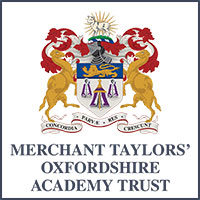Religion and World Views Education at Brightwell
"We value each other"
"In Church of England schools, where pupils and staff come from all faiths and none, religious education (RE) is a highly valued academic subject that enables understanding of how religion and beliefs affect our lives. At the heart of RE in church schools is the teaching of Christianity and pupils also learn about other faiths and world views."
Church of England
Church of England Statement of Entitlement
Curriculum Intent
At Brightwell School, we meet the Church of England Statement for Entitlement for RE and use the Jigsaw RE scheme, drawing on the Diocese of Oxfordshire Agreed Syllabus scheme of work from Year 1 to Year 6 where appropriate, to form the core basis of our curriculum. In order to deliver that content, we have chosen to use our own sequence of units. It is our intent that this subject is taught in all year groups through one topic every half term and will intertwine with our both our school values (kindness, ambition and resilience) and our Christian values (friendship, respect and tolerance). In Foundation Stage RE is taught through the Early Learning Goals.
Our Religion and World View (R&WV) lessons are designed to offer a broad and rich curriculum to allow for coverage of the areas prescribed; to allow for a variety of ways to explore religions, their community and personal development and wellbeing and have an intention of providing a high quality, coherent and progressive experience of the subject. Through each unit, children will know about and understand a range of religions and world views. They will be able to identify, investigate and respond to a variety of issues. SMSC, personal growth and community cohesion are featured and are there to ensure opportunities for children to develop positive attitudes and values and to reflect on and relate their learning in the subject to their own experiences. The intent is to make sure that children understand the relevance of Religion and World Views in today’s modern world and how it affects our lives.
Curriculum Implementation
As a school, we are dedicated to the teaching and delivery of a high quality R&WV curriculum and, as such, provide lessons which cover the full range of religions laid out in the Agreed Syllabus, including Humanism in Upper Key stage 2. Each year group studies Christianity in depth plus a combination of other religions from either Judaism, Buddhism, Islam, Sikhism or Sanatana Dharma (Hinduism). Throughout the enquiry-approach, children are allowed to examine moral issues and challenge their own thinking by considering what that worldview says and every lesson contributes to at least one aspect of children’s SMSC development and many contribute to more.
Each unit – or ‘enquiry’ – studied has an over-arching ‘Key Question’ which necessitates children using their subject knowledge and applying it to the enquiry question, rather than this knowledge being an end in itself. Jigsaw RE focuses on critical thinking skills, on personal reflection into the child’s own thoughts and feelings, on growing subject knowledge and nurturing spiritual development using a 4-step model: Engagement (which explores the children’s own experience), Investigation (gathering of subject knowledge), Evaluation (drawing conclusions and assessing the children’s progress) and Expression (reflecting on how the enquiry may have influenced their own beliefs).
Lessons are always structured in the same way, starting with an opportunity to develop collaborative learning, then helping the brain to focus on specific learning intentions before moving on to initiating new learning and facilitating learning activities to reinforce the new learning. The sessions end with time for the children to reflect on their learning and personal development
Curriculum Impact
Assessment of children's learning in R&WV is an ongoing monitoring of children's understanding, knowledge and skills by the class teacher, throughout lessons as well as book monitoring, looking at outcomes and pupil interviews to discuss their learning and understanding and establish the impact of the teaching taking place. Each enquiry has its own stand-alone assessment activity, criteria and age-related descriptors, which give guidance for assessing each of the 3 aspects of learning involved and made explicit in Jigsaw RE – personal development, subject knowledge and disciplinary knowledge.
We believe that the impact of our R&WV lessons is that children will have a better understanding of the religions that make up the UK landscape and how they can learn from and work alongside each other to create community cohesion. The curriculum will promote inquisitive minds, respect, tolerance and understanding for all those around them including themselves and all children in school will be able to talk confidently about their wellbeing, moral and cultural development for the society in which they live as well as showcasing a deeper understanding of the main religions of the world, their community and their future.
Please see our curriculum overviews on the class pages for further details of what the children are learning.
Click here for The Oxford Diocese Agreed Syllabus
Click here for our Religion and World Views curriculum overview
Click here for our Religion and World Views policy

















